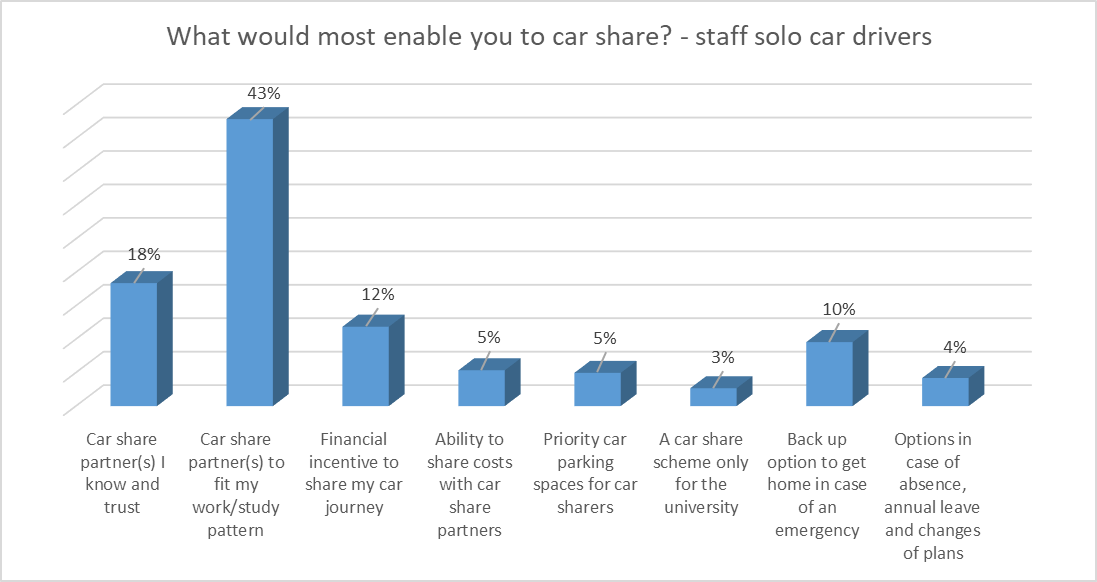Commuting needs
Respondents were asked to pick the three factors that decide their choice of commute. The most chosen factors show a similar profile across different segments of the UoB population. At the top end, time taken, convenience and value for money decide whether a commute works for a member of our community. The mapping analysis showed that journeys by bus and train are generally slower than by car, so there is an uphill challenge in the immediate term. A cyclist can cover nearly as much distance to Old Joe in 30 minutes as a car driver, so commuting by bike can realistically compete on time taken with local solo car journeys. The reliability and flexibility of the commute are significant factors too, the latter in particular for solo car drivers, who rate it much higher than monetary value.
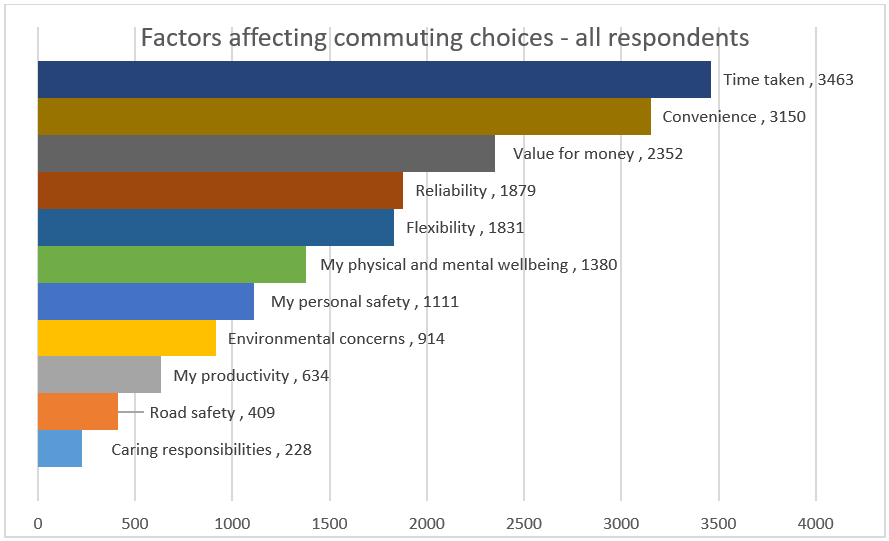
Enabling sustainable choices
The survey then asked respondents to identify the single factor that would most enable and encourage them to take one of the sustainable commuting modes, or to continue to do so if they do already. These questions deepen our understanding of a set of questions in the 2018 survey, which allowed multiple selections. Making just one choice possible shows what really matters to our commuters and will clearly define actions for the next sustainable travel plan, but it is understood that all the options are important to some extent. Here’s what the responses indicated.
Public transport
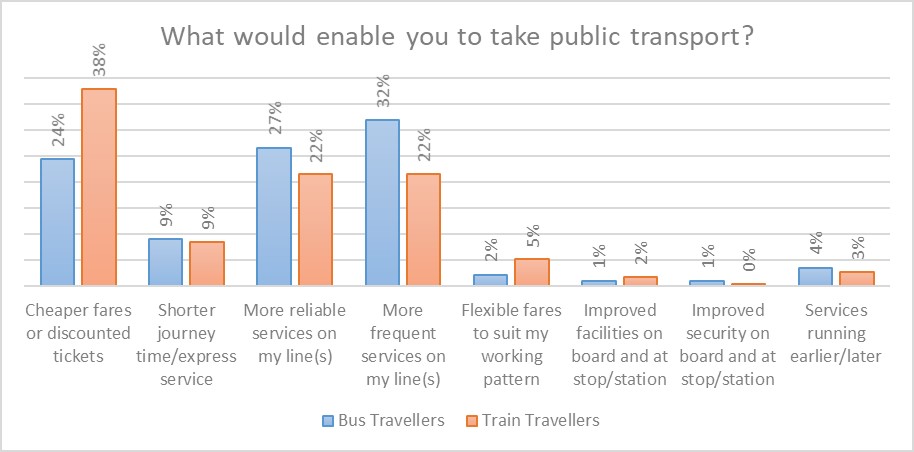
It is a curious paradox that reduced fares are the single most important factor to encourage take up of public transport, whether amongst staff, students, train travellers or solo car drivers, because value for money was only third on the list of general factors affecting commuting choices. The one exception is current bus travellers, which shows how effectively University of Birmingham and partners have have managed to reduce the cost of bus travel. Shorter journey times on public transport would encourage current solo car drivers to try it; greater service frequency and reliability are more important for current bus and train travellers. A central theme of the free responses was that public transport in Birmingham needs to improve and fares need to fall if the university is to be successful in encouraging sustainable commuting, and these results clearly show how.
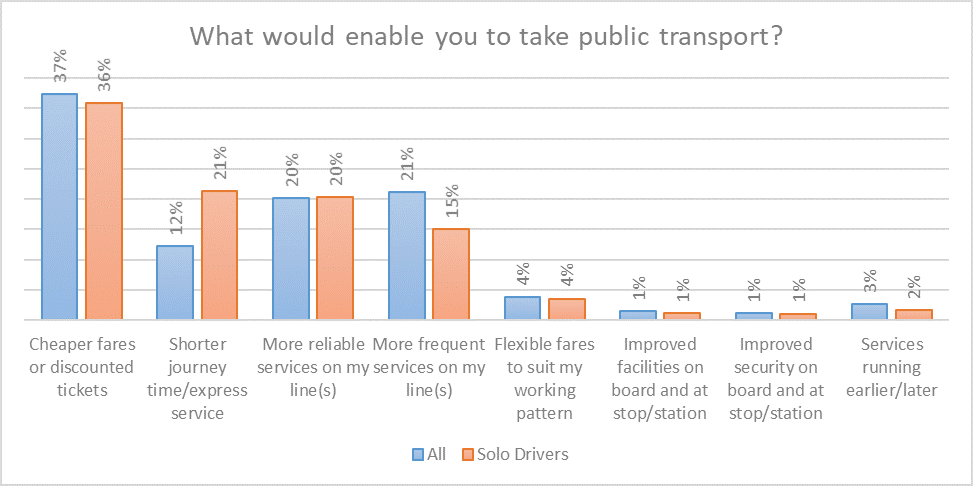
Cycling
There is a clear priority for encouraging cycling: making roads safer and adding cycling infrastructure. Forty percent of potential cyclists say so and, tellingly, 60% of current cyclists do too. Improving campus facilities with secure cycle storage and showers and changing facilities are significant for staff; being able to buy a good-value bike is important for would-be student cyclists.
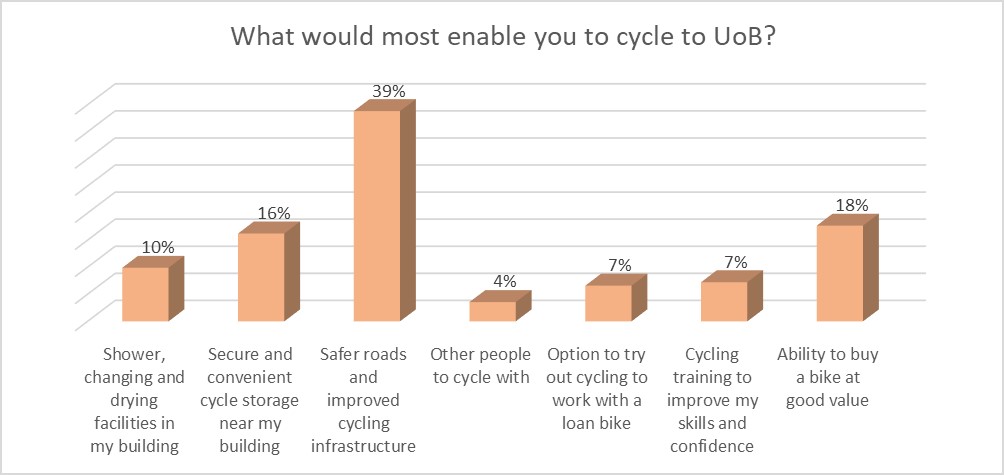
Walking
Personal safety is most important for students with 44% saying that they would walk more if there was a lower risk of harm. Over a third of staff who could walk said the same. Students selected ‘other people to walk with’ in large numbers, which is likely motivated by personal safety concerns, and suggests community-based solutions. Road safety is key for both groups, especially staff, and over 22% of colleagues who could walk would like to see better facilities in their building, just like their cycling counterparts.
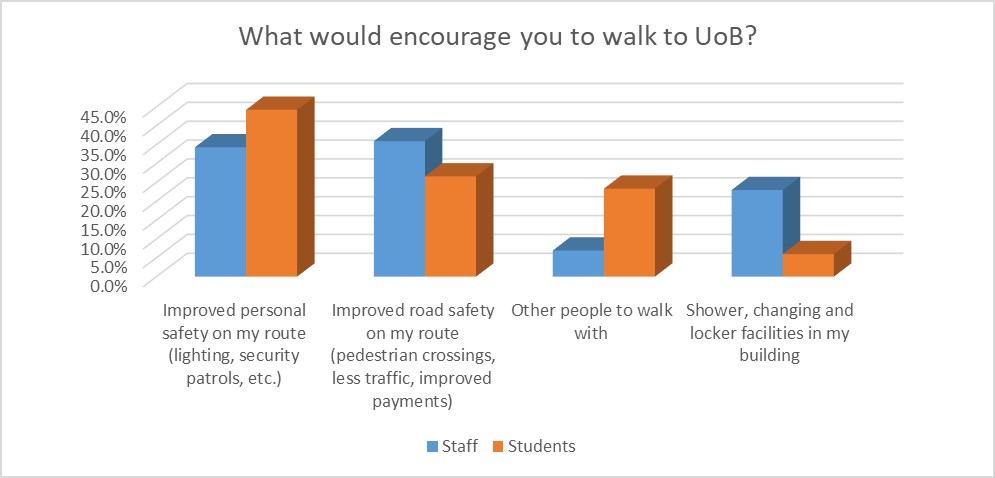
Carpooling
The most important thing to enable colleagues to carpool is having the right person share with, whether on a personal or practical level. It is essential therefore to attract as many staff as possible to join a lift sharing scheme to raise the chances of making compatible carpools. Other factors, notably financial incentives and back up options, are secondary, though they can help make a scheme attractive.
